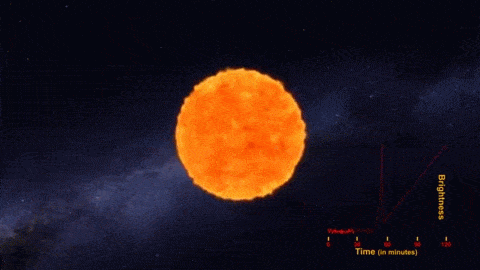John C. Baez's Blog, page 73
April 17, 2016
Statistical Laws of Darwinian Evolution
guest post by Matteo Smerlak
Biologists like Steven J. Gould like to emphasize that evolution is unpredictable. They have a point: there is absolutely no way an alien visiting the Earth 400 million years ago could have said:
Hey, I know what’s gonna happen here. Some descendants of those ugly fish will grow wings and start flying in the air. Others will walk the surface of the Earth for a few million years, but they’ll get bored and they’ll eventually go back to the oceans; when they do, the...
April 11, 2016
Diamonds and Triamonds
The structure of a diamond crystal is mathematically fascinating. But there’s a related form of carbon, sometimes called the triamond, that’s theoretically possible but never yet seen in nature. Here it is:

In the triamond, each carbon atom is bonded to three others at 120 angles, with one double bond and two single bonds. Its bonds lie in a plane, so we get a plane for each atom.
But here’s the tricky part: for any two neighboring atoms, these planes are different. In fact, if we draw t...
April 2, 2016
Computing the Uncomputable
I love the more mind-blowing results of mathematical logic:
Here’s a new one:
• Joel David Hamkins, Any function can be computable.
Let me try to explain it without assuming you’re an expert on mathematical logic. That may be hard, but I’ll give it a try. We need to start with some background.
First, you need to know that there are many different ‘models’ of arithmetic. If you write down the usual axioms for the natural numbers, the Peano axioms (or ‘PA’ for short), you...
March 29, 2016
Shock Breakout

Here you can see the brilliant flash of a supernova as its core blasts through its surface. This is an animated cartoon made by NASA based on observations of a red supergiant star that exploded in 2011. It has been sped up by a factor of 240. You can see a graph of brightness showing the actual timescale at lower right.
When a star like this runs out of fuel for nuclear fusion, its core cools. That makes the pressure drop—so the core collapses under the force of gravity.
When the core of...
March 25, 2016
Probability Puzzles (Part 3)
Here’s a puzzle based on something interesting that I learned from Greg Egan. I’ve dramatized it a bit.
Traditional Tom and Liberal Lisa are discussing their plans for having children:
Tom: I plan to keep having kids until I get two sons in a row.
Lisa: What?! That’s absurd. Why?
Tom: I want two to run my store when I get old.
Lisa: Even ignoring your insulting assumption that only boys can manage your shop, why in the world do you need two in a row?
Tom: From my childhood I’ve learned there’...
March 23, 2016
Global Carbon Emissions are Flat

About a year ago, the International Energy Agency announced some important news. Although the global GDP grew by 3.4% in 2014, greenhouse gas emissions due to energy use did not increase! We spewed 32.3 gigtonnes of carbon dioxide into the atmosphere by burning stuff to produce energy—just as we had in 2013.
Of course, leveling off is not good enough. Since carbon dioxide stays in the atmosphere essentially ‘forever’, we need to essentially quit burning stuff. You can’t stop a clogged sink...
March 22, 2016
Mathematics in Biochemical Kinetics and Engineering
Anyone who was interested in the Workshop on Mathematical Trends in Reaction Network Theory last summer in Copenhagen might be interested in this:
• Mathematics in (bio)Chemical Kinetics and Engineering (MaCKiE 2017), Budapest, 25–27 May, 2017.
This conference is planned so that it starts right after another one: the 14th Joint European Thermodynamics Conference will be in Budapest from the 21st to the 25th.
Since its first event in 2002, the MaCKiE workshop is organized in every second year...
The Involute of a Cubical Parabola
In his remarkable book The Theory of Singularities and its Applications, Vladimir Arnol’d claims that the symmetry group of the icosahedron is secretly lurking in the problem of finding the shortest path from one point in the plane to another while avoiding some obstacles that have smooth boundaries. I would like to understand this!
I think the easiest way for me to make progress is to solve this problem posed by Arnol’d:
Puzzle. Prove that the generic involute of a cubical parabola has a cus...
March 20, 2016
Interview (Part 2)
Greg Bernhardt runs an excellent website for discussing physics, math and other topics, called Physics Forums. He recently interviewed me there. Since I used this opportunity to explain a bit about the Azimuth Project and network theory, I thought I’d reprint the interview here. Here is Part 2.
Tell us about your experience with past projects like “This Week’s Finds in Mathematical Physics”.
I was hired by U.C. Riverside back in 1989. I was lonely and bored, since Lisa was back on the other...
March 17, 2016
Interview (Part 1)
Greg Bernhardt runs an excellent website for discussing physics, math and other topics, called Physics Forums. He recently interviewed me there. Since I used this opportunity to explain a bit about the Azimuth Project and network theory, I thought I’d reprint the interview here. Here is Part 1.
Give us some background on yourself.
I’m interested in all kinds of mathematics and physics, so I call myself a mathematical physicist. But I’m a math professor at the University of California in River...
John C. Baez's Blog
- John C. Baez's profile
- 29 followers



